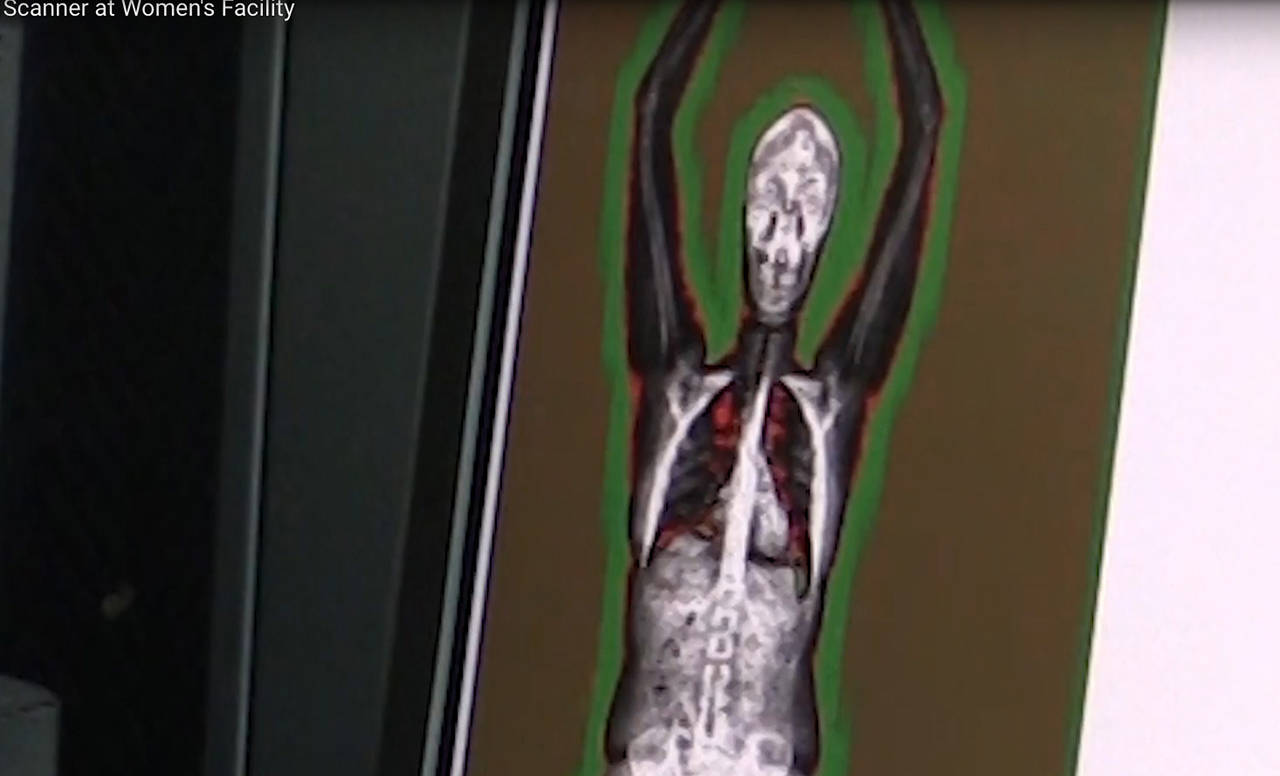MONROE — In the first two months after a state prison near Gig Harbor started using new electronic body scanners, staff found more contraband than they typically do in a whole year.
The scanners, similar to those in airports, may someday replace strip searches in Washington prisons.
Sen. Keith Wagoner, R-Sedro-Woolley, has sponsored a bill to install one of the scanners at the Monroe Correctional Complex, in his legislative district.
Earlier this week the Senate unanimously passed Senate Bill 6064, with one lawmaker excused. The measure must still pass in the House and be signed by Gov. Jay Inslee before becoming law.
Wagoner hopes the technology will eliminate strip searches that are invasive and embarrassing for both staff and inmates while detecting more contraband. The equipment can find objects hidden under clothing and inside bodies.
He also believes it may change behavior.
“I think once people figure out they won’t be able to get past the scanners, they’ll stop bringing stuff in,” he said.
Wagoner initially heard about the scanners from a voter who works for the Department of Corrections, after the first one was installed at the Washington Corrections for Women in Pierce County. Wagoner’s bill would add another scanner there, too, where there are two intake areas.
He hopes the machines can be placed in these two prisons for now, as part of a pilot program, to see how effective they are. And officials can see how they work with populations of both men and women.
The price tag for each scanner is about $170,000, plus tens of thousands of dollars more in installation, upkeep and training costs, according to the state Office of Financial Management.
Concerns prompted some revisions when the legislation was first introduced in December. An early Senate bill report stated the scanners turned up false positives on some women, and they had to spend days in “dry cell watches,” drinking prune juice to speed up their bowel movements.
“It is barbaric and humiliating,” reads a list of possible downsides in the bill report.
Staff found the issue wasn’t with the scanner itself, so much as how to interpret the scans and react when they believed they’d found contraband.
Wagoner first proposed placing scanners in every Washington prison, but later scaled back his request.
“We worked all that out, and that’s why you saw the unanimous vote,” he said.
The final version also includes a section requiring annual reports, training practices for employees and information regarding what happens if contraband is detected.
If technicians suspect someone is trying to smuggle drugs that have been ingested, the inmate must be monitored until the product is passed. The person would be placed in a cell and watched by medical staff for up to 72 hours.
If the bill moves forward, the equipment would be installed by July 2021.
Stephanie Davey: 425-339-3192; sdavey@heraldnet.com; Twitter: @stephrdavey.
Talk to us
> Give us your news tips.
> Send us a letter to the editor.
> More Herald contact information.

























